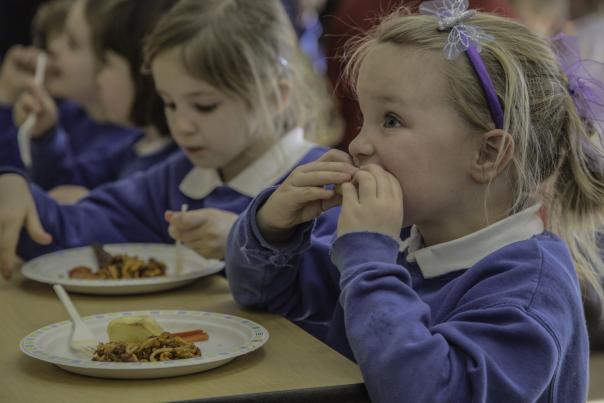
These figures peaked at 18% in 2013 for primary schools, but has declined steeply every year since.
The DfE states that the decline is related to there being fewer parents than previously claiming the benefits, which would make their children eligible for free school meals.
The data finds that primary academies have a higher than average rate of eligibility, with 16.3% of pupils eligible for FSM, compared with 14.5% across all schools.
However, the reverse is the case in free schools; primary free schools have an FSM eligibility rate (12.5%) below the national average.
In response to this data co-chairs Linda Cregan and Jeanette Orrey of the School Food Plan Alliance have urged the government not to lose site of its commitment to launch a childhood obesity strategy amid preparation for Britain’s exit from the EU.
Linda Cregan, CEO of the Children’s Food Trust charity, said: “We fully appreciate the unprecedented pressure and activity across all government departments at this time, but for children’s health it’s very much business as usual: not enough fruit and veg; too much salt, sugar and saturated fat; and the continuing confusion of growing up in a world which makes it easiest and cheapest for them to eat junk food.
“School is one of our biggest opportunities to influence that negative pattern, which is why the ‘game-changing’ actions which have long been promised for the childhood obesity strategy must not be allowed to disappear into the noise and clamour of Brexit.
“In the EU or without, poor diet remains the biggest threat to children’s health in our country and, given the right resources and support, school food has the potential to be one of those game-changing actions.”
Jeanette Orrey, co-founder of Food for Life, said: “The foods children eat at school can help shape their eating habits for life and by making food in schools a great experience, we can show every child what it means to eat healthily and to enjoy good food. We know many schools still need a lot of support to get there, and the childhood obesity strategy must set out the shape of that support in the years to come.”
Head of research Jo Nicholas at the Children’s Food Trust stated that creating a great lunchtime experience for all children in schools is key to increasing the take up of free school meals – both among children who qualify for benefits-based free school meals and among infants, who all have the option of a free lunch.
Jo Nicholas, said: “The census also shows quite a fall since last year in the proportion of children at primary school who qualify for free school meals, but aren’t taking them up.
“This is a real worry and in the coming months we want to look into the reasons for this – we don’t want any child living in poverty to miss out on a nutritious meal at school.
“Not only does it help improve their focus in class, but it can be their only proper meal of the day – particularly important when so many families are struggling to make their food budgets stretch.